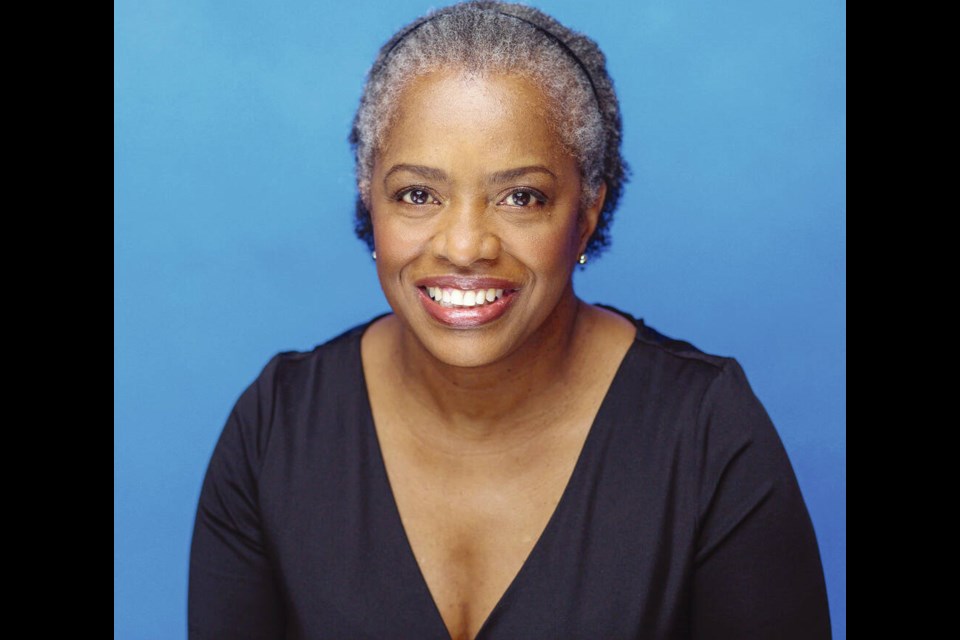ON STAGE
What: Serving Elizabeth
Where: Belfry Theatre, 1291 Gladstone Ave.
When: Through Dec. 19
Tickets: Pay what you want (information at belfry.bc.ca)
Serving Elizabeth playwright Marcia Johnson travelled to Victoria on Tuesday somewhat in the dark about the Belfry Theatre’s upcoming production of her 2020 hit.
And that has her excited about the possibilities.
She’s a big fan of director Nigel Shawn Williams, with whom she has worked in the past. But she was otherwise hands-off when it came to the Victoria production of Serving Elizabeth, due to the fact she is preparing to move Toronto residences on Dec. 1. Johnson flew out to Victoria for opening night of the run of online and in-person performances scheduled through Dec. 19.
When the production opens tonight, it will have an air of newness for the playwright. But being slightly disconnected from her own work wasn’t necessarily a bad thing, Johnson said. “I’m really excited to see what [Williams] has done with it. He’s such a detailed person — he’s the opposite of me. I’m this wild person throwing things at the wall and seeing if they stick, and he just plans and thinks. We balance each other out.”
Serving Elizabeth was inspired by the hit Netflix series, The Crown — a historical drama about the rise and reign of the Queen — though Johnson wasn’t paying tribute in the traditional sense.
Her play is more of a response than an homage. Johnson was motivated to write the play after seeing the second episode of the Emmy Award-winning series, during which the future queen travels to Nairobi, Kenya, as part of a tour of the Commonwealth.
“I was already very impressed with the writing and acting and care they took to represent the stories and characters so brilliantly, so when they shot an episode in Africa and black people were just in the background, I thought that was a huge mistake,” she said.
By ignoring the historical account of the heated reaction to the monarchy’s presence, the episode was not an accurate portrayal, she added. “If [the episode] was written in the ’50s, we can accept that people back then ignored certain people, but they were shooting this in 2015. How could you be so tone deaf? Not everyone in Kenya was happy to see the princess. There were threats against her. An uprtising started when she was there, so to ignore that and show that every person adored her was a missed opportunity.”
In 2017, when Ontario’s Thousand Island Playhouse was looking for new material from playwrights, Johnson submitted a one-page proposal that was a critical review of the Kenya episode in question, which she had seen for the first time the night prior. The playhouse’s initiative was designed to highlight issues surrounding Confederation’s 150th anniversary, so her pitch was immediately successful.
“My idea for the play was to give a voice to some of those Africans, and to show how this kind of mistake happens.”
It would be wrong to assume that Johnson, based on her takeaway from the series’ second episode, hates The Crown. Quite the contrary, in fact. “Things are more complex than that,” she said. “I wrote what I wanted to see, and I would say that is common of everything that I write.”
She liked the idea of setting Serving Elizabeth in two distinct time periods, Kenya circa 1952 and London in 2015, with a cast of characters that includes everything from an anti-monarchist cook to a Kenyan-Canadian film student. Serving Elizabeth looks at our past mistakes and how those affect modern-day mores, with a healthy offering of comedy in the mix.
The latter aspect, which Johnson says is crucial to the success of Serving Elizabeth, can be tricky to pull off in a play dealing with serious subject matter at its core.
“I don’t think people expected me to portray the Queen as an ordinary, decent person. I think people thought I was going to get my revenge. Really, all I wanted to do was say, ‘Here is another way of looking at things.’ That’s why I wrote it.”
The Jamaica-born Johnson, who emigrated to Canada with her family when she was six, did not want to speak directly for the people of Kenya. She said she wrote Serving Elizabeth as an act of solidarity.
“I want to back away from saying it was my culture I didn’t see represented. I’m from Jamaica, and grew up in Canada. But I probably would have felt the same way if it was an episode where they went to China, and the Chinese people didn’t speak and just looked at [the Queen] adoringly all the time.”



